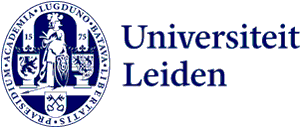
From Covid student to biotech entrepreneur: Violette Defourt is working on rapid STI diagnostics
Armed with a bachelor’s degree from Maastricht and a passion for infectious disease, Violette Defourt came to Leiden for her master’s just before Covid hit. Four years later, she is leading her own biotech company, which aims to radically speed up diagnostics.
Originally from Brussels, Defourt arrived in Leiden in the summer of 2019 for a pre-master’s in Immunology that would allow her to take the research master’s in Biomedical Sciences. She hadn’t been able to find a house, so she spent her first months in an Airbnb in Oegstgeest. ‘Like every good expat,’ she laughs.
‘The university was a safe place for aspiring entrepreneurs.’
Fascination with infectious diseases
Her decision to come to Leiden was based on her broad interest in infectious diseases. ‘In Utrecht, the focus was on cardiovascular conditions, whereas in Leiden it was on infectious diseases and immunology – that appealed to me much more.’ But studying at Leiden was not what she had expected. ‘Having just come from a super lively time in Copenhagen and Maastricht, Leiden felt really studious. Covid made the social side a lot harder too, and housing was a real challenge.’ As far as her degree was concerned, ‘The content was fascinating but the curriculum was strongly research focused. I began to wonder whether it was right for me.’
-

Violette (centre) explains the concept of Rapidemic at an Innovation Quarter event in the theatre in Leiden. -

The winning iGEM team. Violette (not in the photo) was part of the team.
International biology competition
This all changed at an info evening about iGEM, an international synthetic biology competition. ‘I went out of pure curiosity but ended up being selected and did the whole project alongside my master’s,’ says Defourt. During iGEM, her team developed a new test technology for infectious diseases. ‘I’d pushed for doing something with infectious disease diagnostics. That project really took off.’
Much to their surprise, the Leiden team won the international final in November 2020. This planted the seed for Defourt’s company: Rapidemic . ‘A few team members and I transformed the project into a startup. Leiden University actively supported us. We were given office space at PLNT, help from the Leiden Bio Science Park and access to funding through the university holding. Rapidemic would have never been possible without that support.’
Due to the selected cookie settings, we cannot show this video here.
Watch the video on the original website orMobile lab
What does the company do? ‘Most STI tests are currently done in a roundabout way: a sample is sent to the lab, the patient waits days for a result and then often has to return,’ Defourt explains. ‘We’re developing a portable test that is just as precise as a lab test but provides a result within 15 minutes. With no lab or waiting time. That makes diagnosis much cheaper and much more accessible and patient friendly.’
The first test – for chlamydia and gonorrhea – is for GPs and clinics, but in the long run should be available at the chemist or pharmacy. ‘Then you can test at home and safely share your result with a doctor, who can write a prescription. This prevents the further spread and unnecessary antibiotic use.’
Flying start
Defourt now works with an international team of around 13. The company has already raised 2.8 million euros in funding, including from the Gates Foundation. Her main focus now is on the company’s vision and fundraising. ‘I’m no longer in the lab. My work is about strategy and collaboration. But I know what we’re doing it for.’ As for the future, she is ambitious. ‘Our technology is a platform. After the first test, we can quickly scale up to other infectious diseases. Our focus is now on STIs but the options are much wider. This is just the beginning.’
